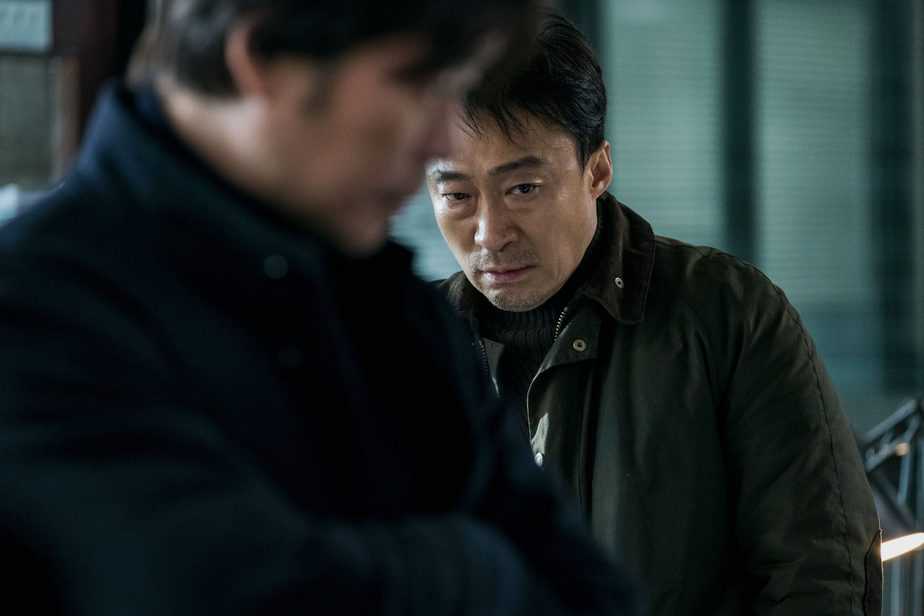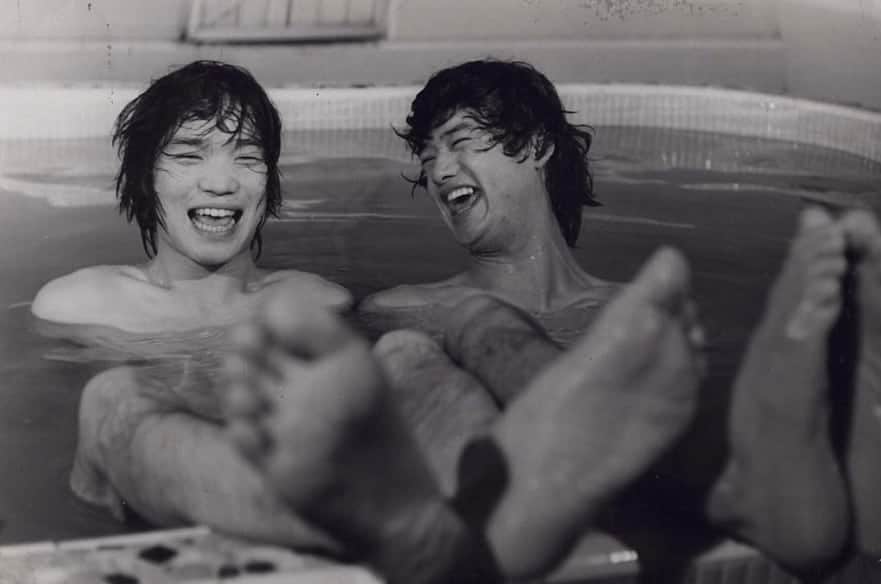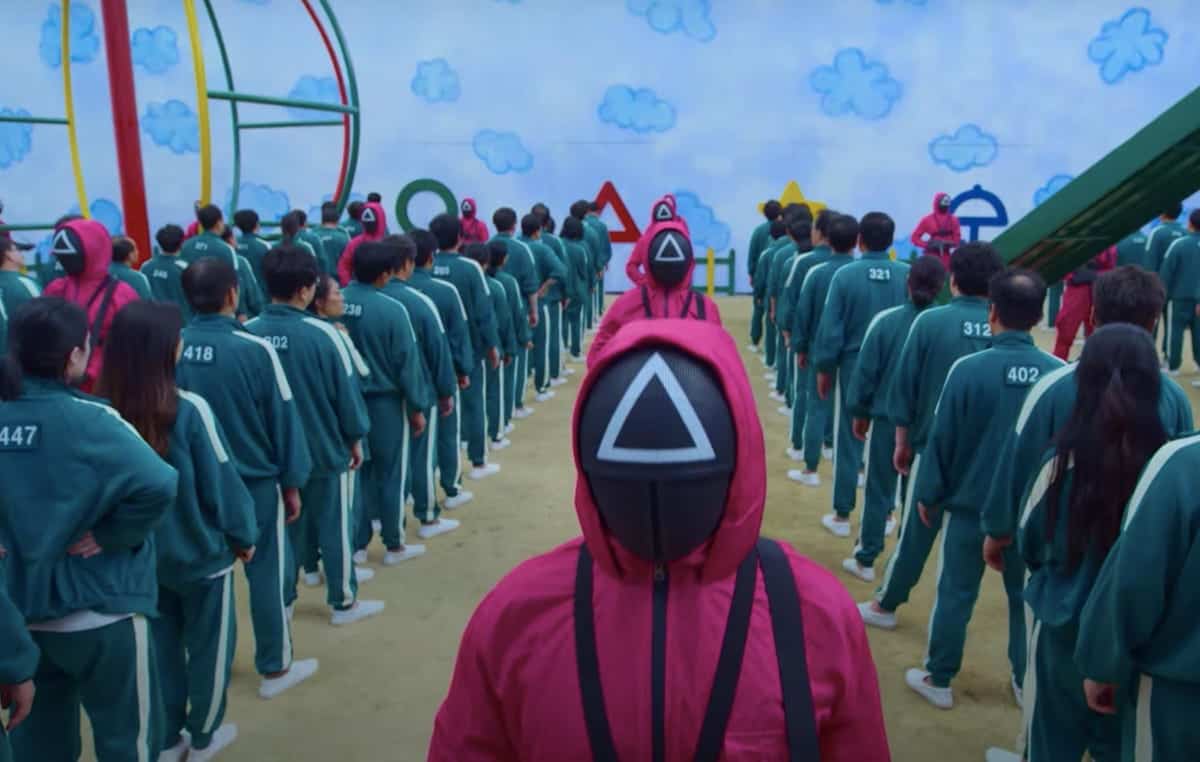Haruhiko Arai (recently portrayed by Kisetsu Fujiwara in “Dare to Stop Us“) has always been a somewhat controversial personality in his more than 40 years in the movie industry, although his prowess in script writing is undeniable. One of the elements that make his work stand out, is that he is one of the few Japanese artists who uses explicit sex in organic fashion in his movies, not mainly to titillate, but as part of the overall narrative, with films like “Vibrator” and “Kabukicho Love Hotel” highlighting this trait in the best fashion. This approach is also obvious in his third (fourth if you count a co-director credit in “Gushing Prayer“) directorial effort which netted him awards from Kinema Junpo and Yokohama Film Festival.
It Feels so Good is screening at Camera Japan

Akita and Naoko are cousins but also used to be lovers some time ago. Since then, however, their lives have taken completely different paths, with him getting a divorce and becoming unemployed, partly due to the 3.11 impact and her getting betrothed to a military officer and rich in the meantime. When Akita is invited back to their hometown to attend her wedding, Naoko asks to meet him, supposedly to help her move her new TV to her new house, but it is soon revealed that her purpose is not only to reminisce about the past, and the two end up having sex. However, the deed wakes up Akita's sleeping libido and the two soon find themselves spending their time together having sex and talking about the past. Naoko insists that this will only last for 5 days, until her fiancé returns from a trip.
With an approach that is both sensitive and realistic, Arai directs a movie that uses sex to speak about the past and how it can shape the present along with the implications of the actual deed. The question of if sex is love is repeatedly posed in the narrative, with Arai highlighting the difference in the ways men and women approach it, with the former focusing more on the physical aspect and the letter on sentiment. The consequences of abstinence, in one of the film's funniest moments, the reasons women want to have children, and the concept of fate regarding relationships are also themes that are examined, as the narrative follows a motif of sex, food and dialogue, at least for the majority of the 115 minutes of its duration.
At the same time, the whole story seems to be surrounded by a sense of misery and abandonment, which begins emitting from Akita and the consequences of his life choices, but also of the ones 3.11 had in his life, eventually surrounding both as a new natural catastrophe is about to happen. Koichi Kawakami's realistic but somewhat bleak cinematography plays a major factor in this approach, with a number of the most visually impressive scenes in the movie (the one in the beach and the panoramic of a poster of Mt. Fuji) also following the same path.
Also impressive is the way the sex scenes are designed and shot. Both protagonists are beautiful, but by no means outwordly beautiful, with the lack of full body make up (as is usually the tactic) adding to their realism, as the viewer can actually see the “flaws” in their skin and overall body. The same applies to the acts, which are not as cinematic as usual, but instead focus on realism, perhaps with the exception of the few scenes of public sex. The same applies to Chieko Suzaki's editing in those scenes, who uses long takes instead of many brief ones that usually suggest a change of position.
This realism actually extends to the whole of the narrative, although the movie does not become documentary-like at any point, perhaps with the exception of the festival the two attend. Somewhere here, however, is where the most significant fault lies, since, considering the duration, the slow pace and the overall lack of action, it can become a bit tiresome at points, although the sex scenes tone down even this element.
Tasuku Emoto as Kenji and Kumi Takiuchi as Naoko perform in complete resonance with the overall aesthetics, highlighting their detachment from the world around them that borders on nihilism in the best way, with Arai suggesting that their behaviour is the consequence of the 3.11 disaster. Their chemistry is also excellent, finding its highlight in the few scenes both let their feelings surface plainly. Furthermore, the dynamics created by the fact that she knows that what she is doing is wrong, him giving her a hard time for that and her decision to marry, and her understanding his reasons for being occasionally harsh is excellently portrayed, and actually one of the highlights of the movie.
“It Feels so Good” may entail some of the faults of modern Japanese cinema, particularly regarding its duration, but emerges as a rather interesting spectacle that uses its erotic basis to tell a story that is meaningful in a number of levels.















